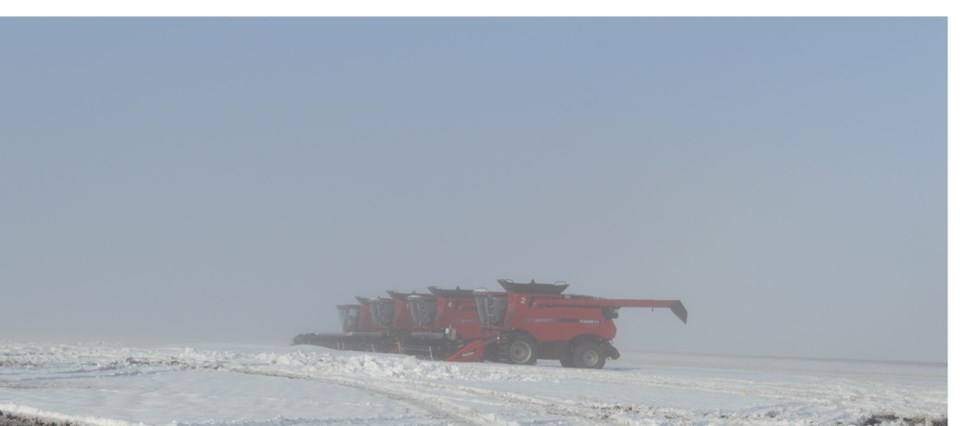For some of the Wills, going organic is a family affair.
It all started with Chad, who began converting about 15 years ago. His cousin Brodie followed suit and his uncle Stan is in the middle of the process.
“They watched us and they asked questions and they could see it was really working for us,” said Chad. “They figured we were having a little less stress without all the inputs and that our farm was coming out a little faster than it was before, when we were conventional.”
The big differences
Switching from conventional to organic largely means Chad doesn’t use sprays or fertilizers.
“To get out of using herbicides, we do lots of summerfallowing and we have to work our land a couple of times in the fall after harvest to get things stirred up good,” he said. “In the spring, when the weeds start growing, we’ll do two or three cultivations before seeding, usually about two, so that we can get a kill on the weeds.”
Going herbicide-free requires some co-operation with neighbours. Chad said the producers who farm the quarters around him try to be careful about which direction the wind is blowing when they spray and try not to overlap.
The Crooked River farmer said he’s getting more compliments about the cleanliness of his fields.
“When we first started, about 15 years ago, there was a lot of negativity towards organics because there were a lot of guys that weren’t controlling the weeds properly.”
If Chad does get a ‘dirty’ field, he can disc the crop under, which will act as grain manure for the next season.
He also has a 25-foot buffer strip that is combined separately from the rest of the field, then sold to an elevator. After, he shows the receipts to his organic association to prove that he is following their regulations.
Another alteration is growing yellow clover, red clover and alfalfa as a replacement for nitrogen fertilizer.
A lifestyle and business choice
Chad’s farming transition started 15 years ago.
“It was the start when farmers were going bigger and bigger and there was kind of a decision to make, whether we took the trend to go bigger or whether we specialized,” he said.
“We decided to try organics and we converted two quarters at the time and did that for a few years and found that we were making more per acre organically than conventionally, so that’s when we started converting them all.”
There are some pros, like going to the lake with his kids when conventional farmers are spraying, as well as avoiding the investment in inputs, which can cost producers hundreds of thousands of dollars.
There are some negatives, though:
“If you need to pay a bill, you can’t just run some grain to the elevator.”
Instead, Chad markets to specific companies like Grain Millers in Yorkton and Sunrise Foods in Lake Lenore. He’s certified through Pro-Cert Organic.
The business choice is also a lifestyle choice: he tries to eat as organic as possible, too.
“In a small community, it’s hard for the local grocery stores to carry that much organic food, but the grocery stores try harder and harder to have a few more options.”
Chad warns that food labelled as ‘all-natural’ or ‘pure’ aren’t organic. A product requires the ‘certified organic’ stamp.
While organic farming isn’t for every producer, it’s working for Chad.
“If you can do things that are a little more health-friendly for your children and your environment, I think it’s a good thing.”




